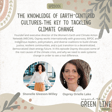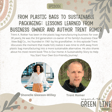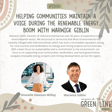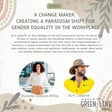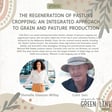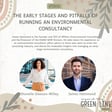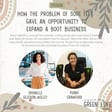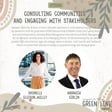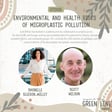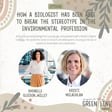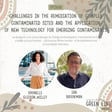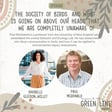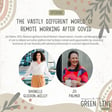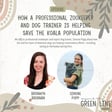
Regenerative Agriculture – From Junkie Crops Looking For A Fix To Helping Mother Nature Rediscover Herself
Today on Beyond the Green Line, Shonelle Gleeson-Willey talks with regenerative agriculturist Dr. Charles Massy.
Charles became an advocate for regenerative agriculture after the infamous four-year draught of the late 70’s and early 80’s, when he transformed his personal approach from conventional farming to regenerative holistic management of his property on the Monaro.
He has now written three books, received an OAM, and maintained a chemical-free property for decades - one that boasts native grass in an area where surrounding farms have turned to dustbowls during recent droughts.
We hear all about his life-altering decision to transition to regenerative farming, the keys to his success in the process of restoring his soil, and his PhD research on some of the catalysts and destabilizing events that cause regenerative farmers begin to adopt the approach and turn their landscapes around.
Shonelle and Charles discuss the crucial topic of fertilizer, and how natural alternatives to chemical herbicides and pesticides - like worm juice and compost extract - can result in better nutrition and healthier soil.
Dr. Charles Massy defines regenerative agriculture succinctly by saying, “it’s working with biology and not against it.” He clarifies that every farmer’s biggest asset is the land, even above their animals or crops, and reminds us all that there is indeed a way to successfully utilize natural soil and graze animals in a sustainable and healthy way.
He asserts that nature’s self-organizing processes are far superior to our simplified, chemical-driven modern approach. By maximizing solar energy, protecting soil health, tending to the water cycle, ensuring biodiversity, and refraining from interfering nature’s timing, humans can become better stewards of land while harvesting more nutritious crops.
Charles explains that during the scientific revolution, humanity shifted to a “mechanical mind,” and distanced ourselves from nature. The combination of that more arrogant mindset with the invention of chemical fertilizers, big farming machinery, and motive for profit after World War II is what created the modern human ecosystem of farming in the form it exists today.
But, now that we’re more aware than ever of our climate and soil’s vulnerable state, a swing back to regenerative agriculture would have a huge positive impact on the planet as well as human health. Charles skillfully teaches us about the biology and carbon impact of different approaches to farming, and casts vision from where we can, and must, go from here.
